Managing a law firm requires juggling a complex mix of responsibilities—communicating with clients, tracking deadlines, managing documents, billing accurately, and ensuring compliance. For attorneys trying to grow their practice or just keep things from falling through the cracks, these administrative demands can quickly become a burden.
Legal practice management software aims to solve this problem. By centralizing core functions like case tracking, timekeeping, client communication, and invoicing, these platforms allow attorneys to streamline their operations and focus more on serving clients. MyCase is one of the more established players in this space, offering an all-in-one, cloud-based solution used by thousands of law firms across the U.S.
In this article, we’ll explore what MyCase does, who it’s built for, its key features and pricing, and how it stacks up against competitors.
What is MyCase?
MyCase is a legal practice management platform designed to help law firms handle their day-to-day operations more efficiently. The software brings together tools for case management, billing, scheduling, document storage, and client communication into a unified dashboard. Developed by AffiniPay—the same company behind LawPay—MyCase is focused on helping small to midsize law firms modernize their workflows, reduce administrative overhead, and improve client service.
Everything in MyCase is cloud-based, which means attorneys and staff can access their work from anywhere with an internet connection. The platform is especially popular with firms that want to move away from spreadsheets, shared drives, and disconnected apps, and into a more structured, integrated system.
What is MyCase Used For?
MyCase is used to centralize and automate much of the day-to-day work involved in running a legal practice. It’s built to reduce manual processes and allow attorneys to spend more time practicing law and less time dealing with the administrative side of their firm.
Case Management
Case management is at the heart of MyCase. The platform allows users to track every detail of a case—including documents, contacts, notes, deadlines, and communications—from a single screen. Cases are organized in a way that keeps everything easy to find, and built-in tools like calendaring and reminders help ensure important dates and court deadlines aren’t missed. This feature is essential for keeping teams aligned and avoiding costly mistakes due to disorganization.
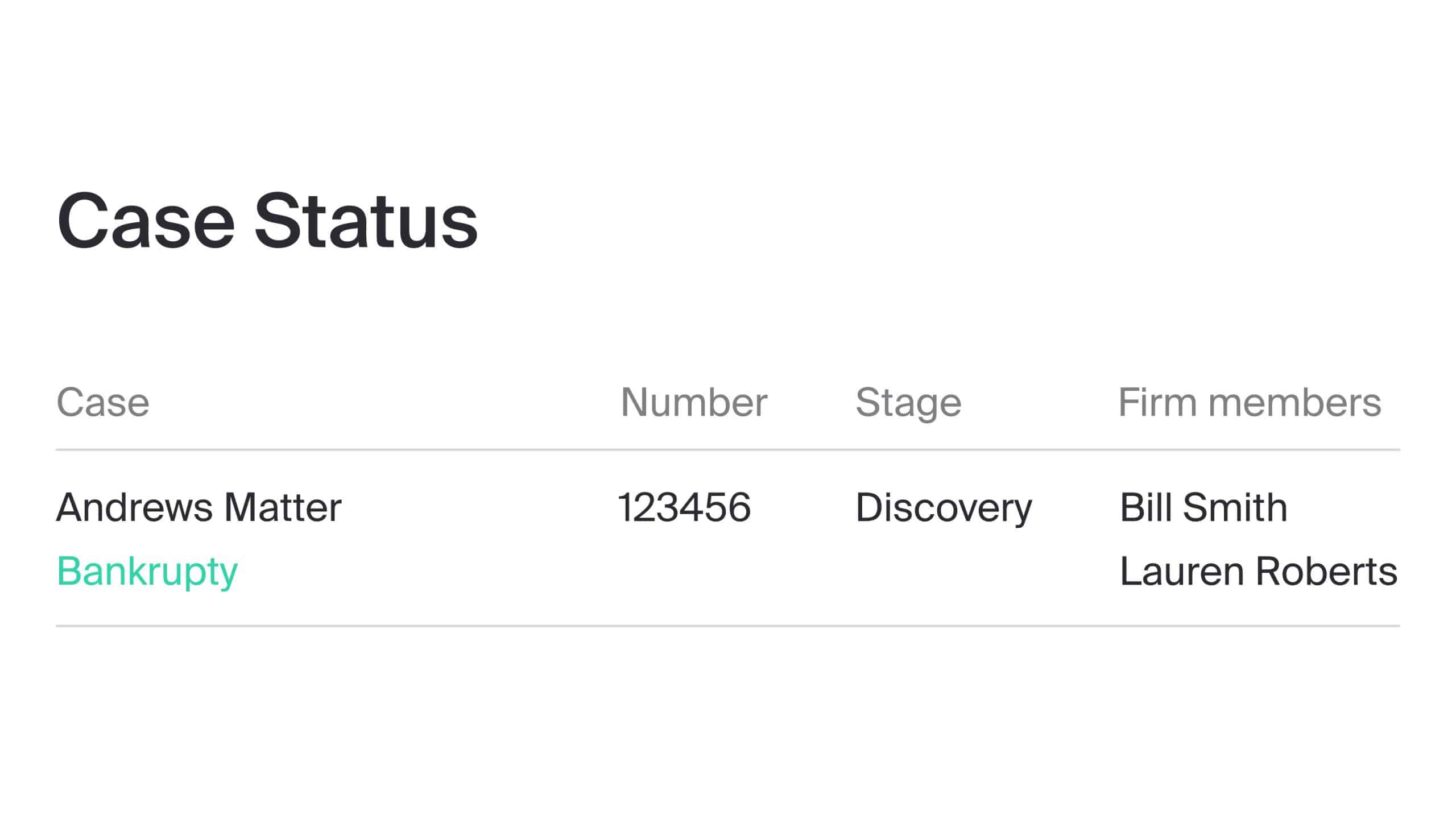
Client Communication
MyCase includes built-in messaging and email tools that let attorneys and clients communicate securely without needing to switch to external platforms. The client portal enables clients to log in, view updates, upload documents, and send messages directly. For firms that want to improve transparency and reduce time spent answering status-update calls or emails, this communication layer can be a major asset.
Time Tracking & Billing
The billing and time tracking tools in MyCase are designed to minimize missed billable hours and make invoicing as fast as possible. Attorneys can track time with timers or manual entries, and then convert those hours into invoices with a few clicks. Online payments are handled via LawPay integration, so clients can pay directly through the platform. This end-to-end billing workflow not only saves time but also improves cash flow.
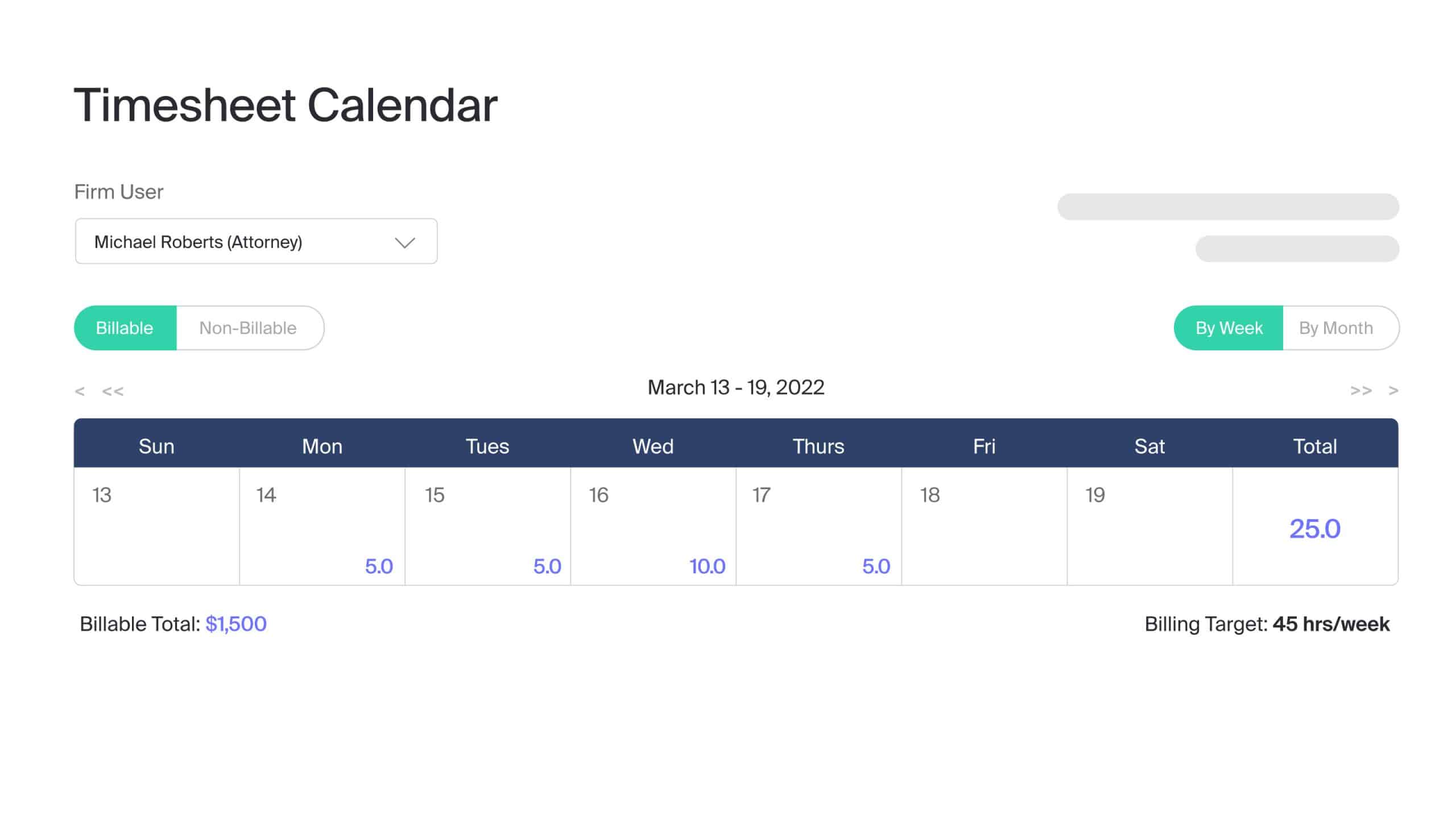
Document Management
MyCase provides centralized document storage with version control, e-signatures, and integration with Microsoft Office tools. Legal teams can upload, edit, and organize case documents without needing a separate DMS (document management system). Because everything is cloud-based, files can be accessed securely from anywhere, reducing the need for paper or local file servers.
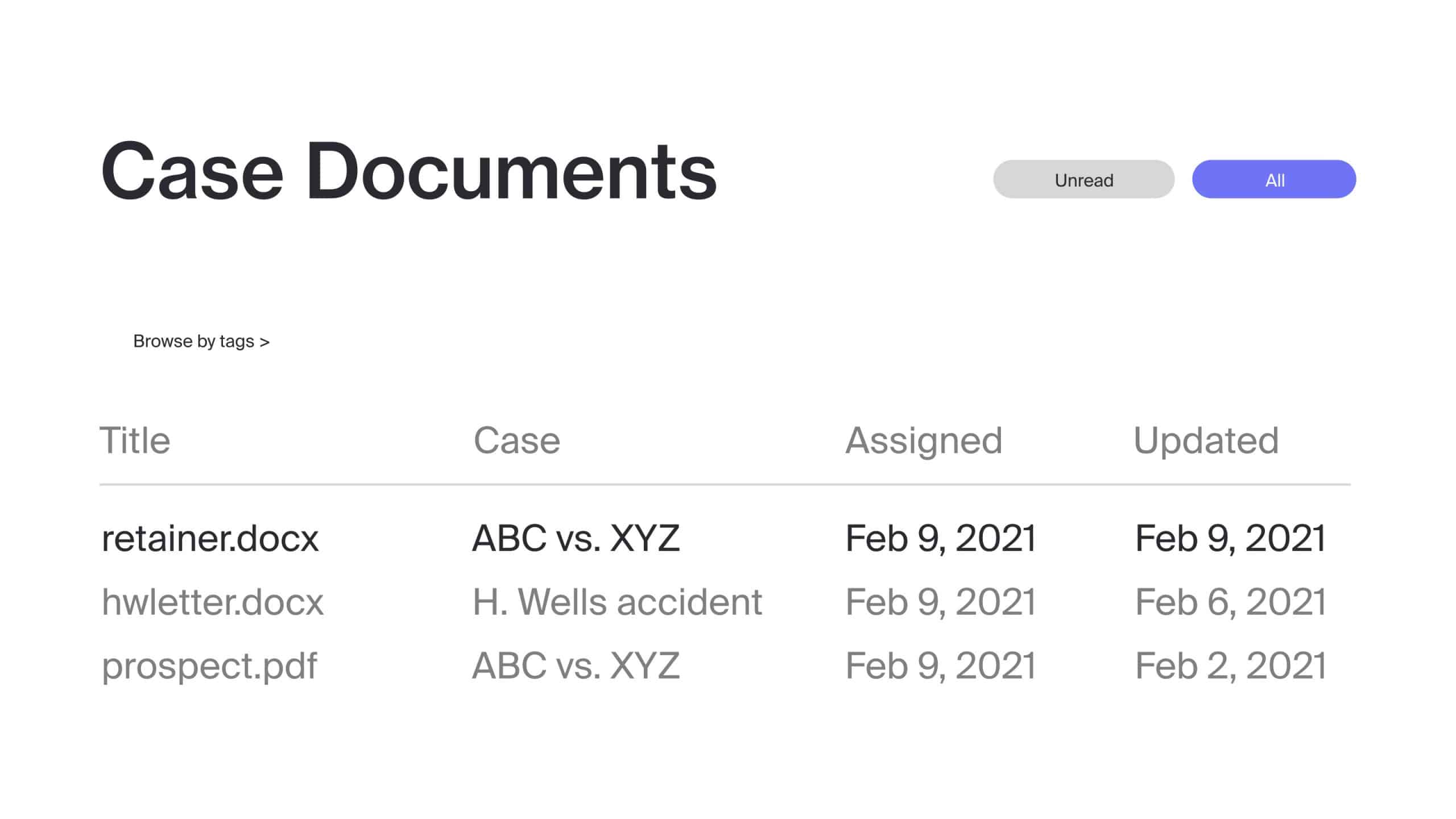
Task Management
Each case can have its own list of tasks, deadlines, and assignees, making it easy to keep track of responsibilities across the firm. Tasks can be linked to calendar events and tied to workflows, ensuring that nothing falls through the cracks during intake, case work, or closing procedures. While basic, this task functionality helps support operational consistency across the practice.
Who Uses MyCase?
MyCase is primarily used by solo attorneys, small firms, and mid-sized law practices across a range of specialties including family law, personal injury, criminal defense, immigration, and civil litigation. It’s especially popular with firms that want a system that’s easy to adopt without requiring dedicated IT resources or extensive training.
Because it’s cloud-based and offers a relatively intuitive interface, MyCase is a good choice for firms that need a solution they can roll out quickly. It’s also useful for legal teams working remotely or across multiple locations, since the entire platform can be accessed from any device with a browser. While some larger firms may find it lacks the customization they need, it hits a sweet spot for practices that want structure without complexity.
What are the Main Features of MyCase?
MyCase offers a wide range of features designed to handle both the legal and business sides of a law firm. Here are some of the standout tools:
Client Intake Forms
MyCase allows law firms to create custom client intake forms that can be sent electronically. This helps streamline the onboarding process and reduces the back-and-forth of collecting client information manually. Responses are stored directly in the client’s record, minimizing errors and speeding up the start of a new case.
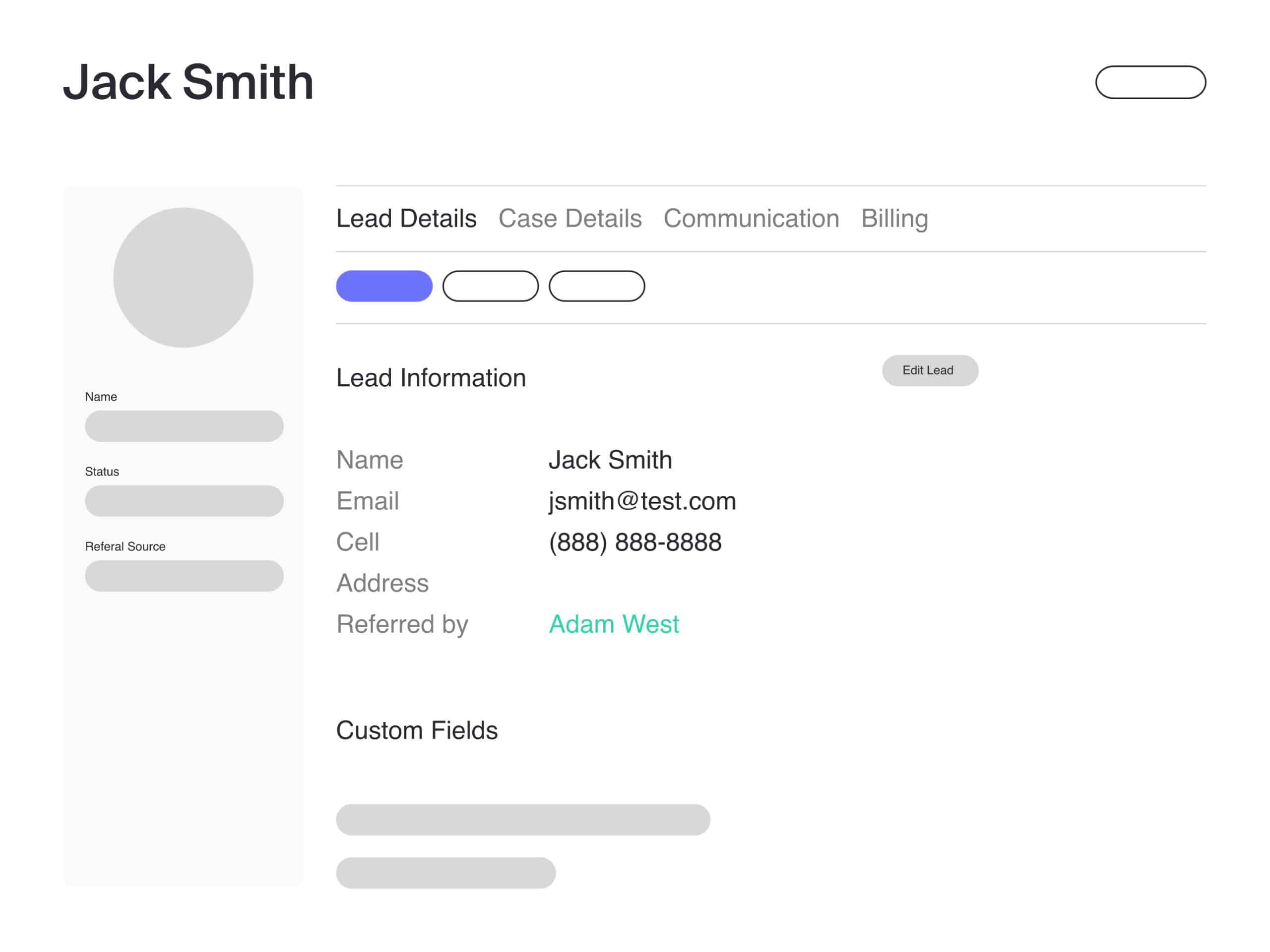
Law Firm CRM
The built-in CRM (customer relationship management) features let firms manage leads, track follow-ups, and log communication history. This is especially valuable for firms that want to grow their caseload and need a better way to track potential clients from first contact through signed engagement.
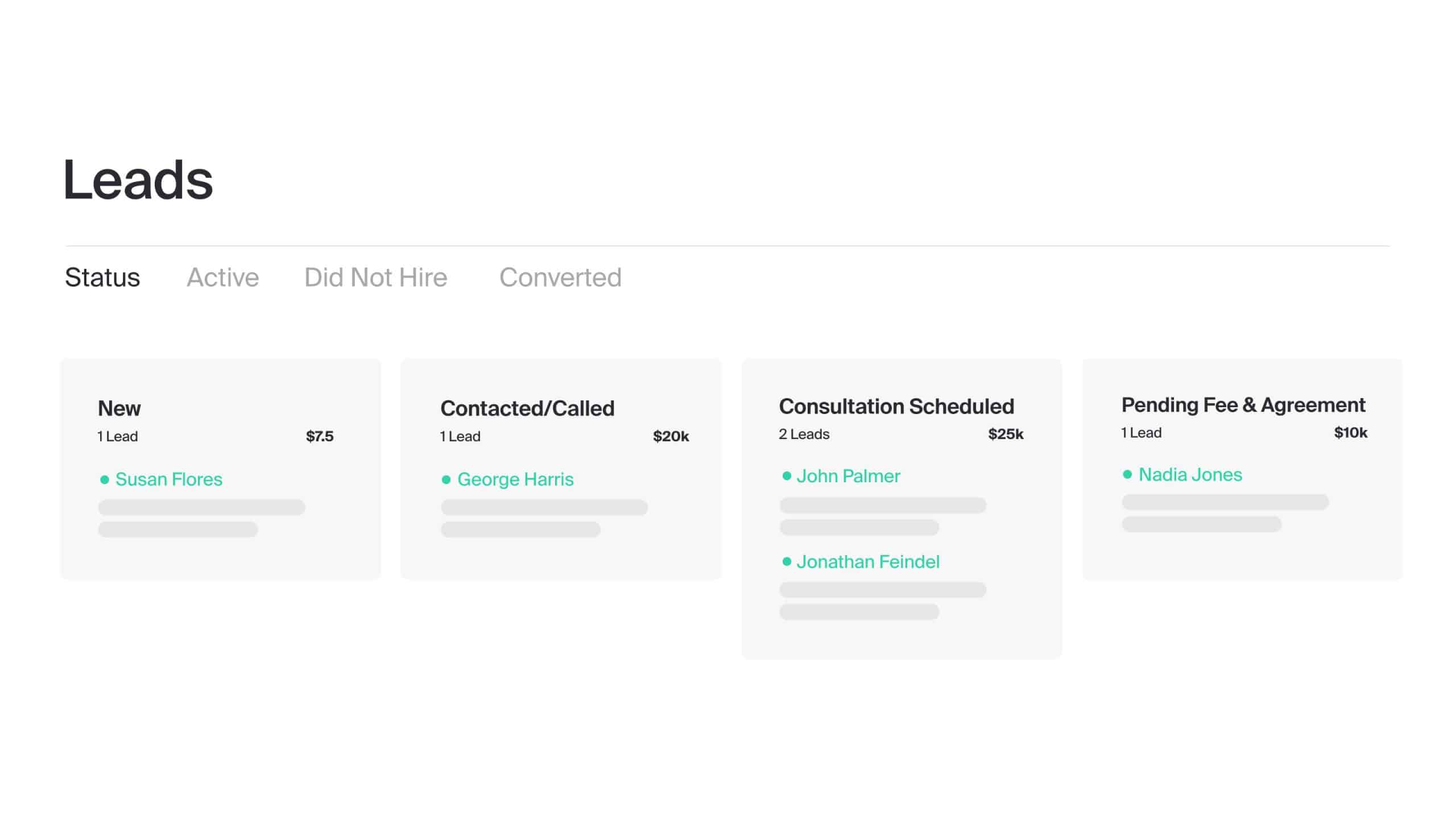
Workflow Automation
Firms can automate routine actions like sending reminders, assigning tasks, or updating case statuses. These automations help ensure that no step in the process is skipped and that every case is handled consistently. It’s a great way to enforce procedures without relying on staff to remember each step manually.
Advanced Document Automation
For firms that generate a high volume of legal documents, MyCase includes tools for building templates with merge fields that can auto-fill case and client information. This reduces repetitive work, ensures consistency, and cuts down on errors in legal paperwork.
Case Analytics
Built-in reporting tools let firms track performance across key metrics like billable hours, time to close, and outstanding invoices. These insights help firm owners identify bottlenecks, assess staff productivity, and make data-informed decisions about where to improve operations.
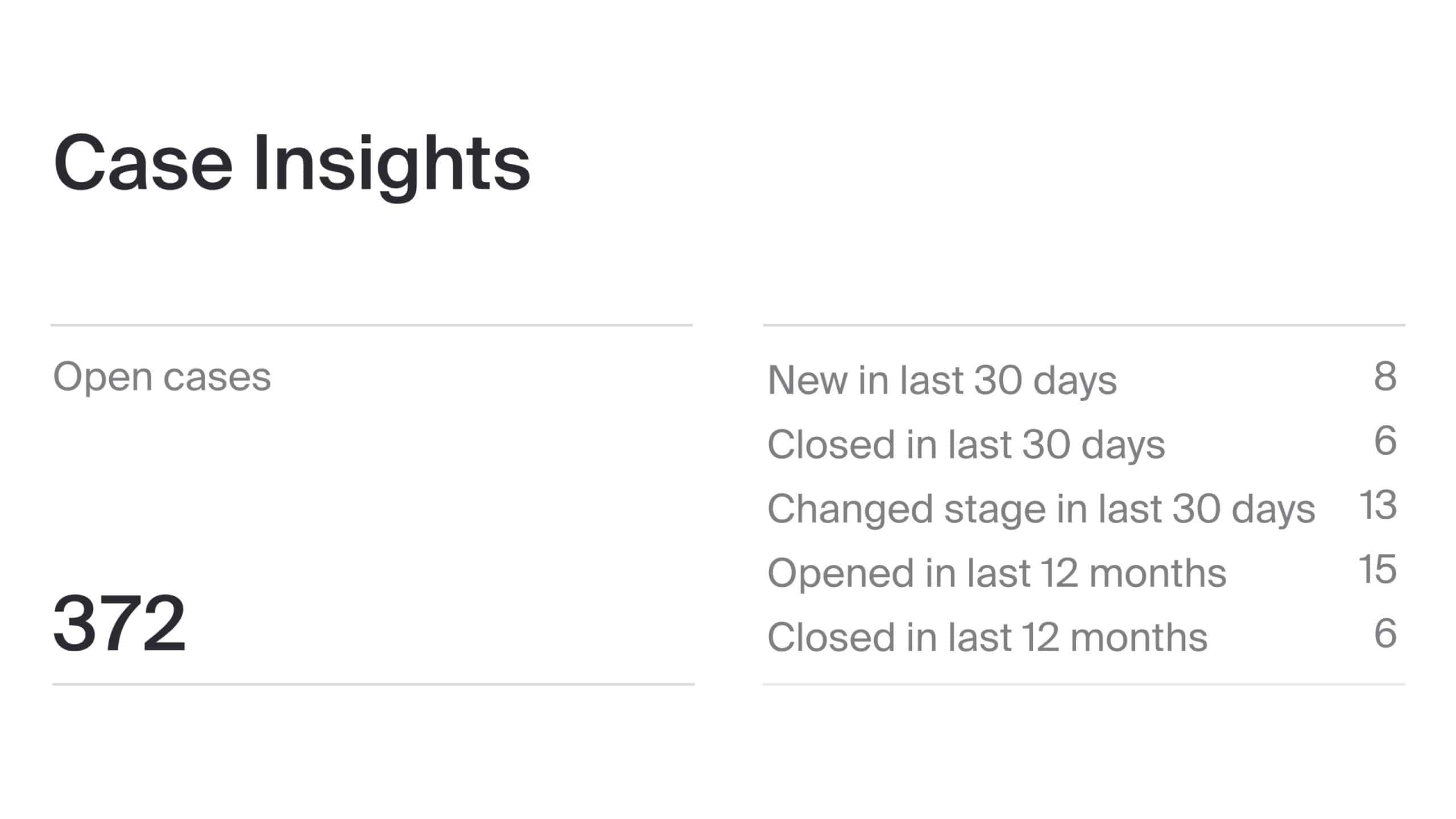
Financial Insights
Beyond basic billing, MyCase provides dashboards that show the financial health of the firm at a glance. Attorneys can track revenue, view payment trends, and forecast cash flow based on open invoices and payment history. This feature is especially valuable for solo attorneys or firm managers who are responsible for both legal work and business strategy.
Client Portal
Clients can log into a secure portal to view updates, send messages, upload documents, and pay invoices. This not only enhances the client experience but also saves staff time by reducing the number of phone calls and emails asking for status updates. A well-designed client portal like this can be a competitive advantage for firms looking to offer a modern, digital-first experience.
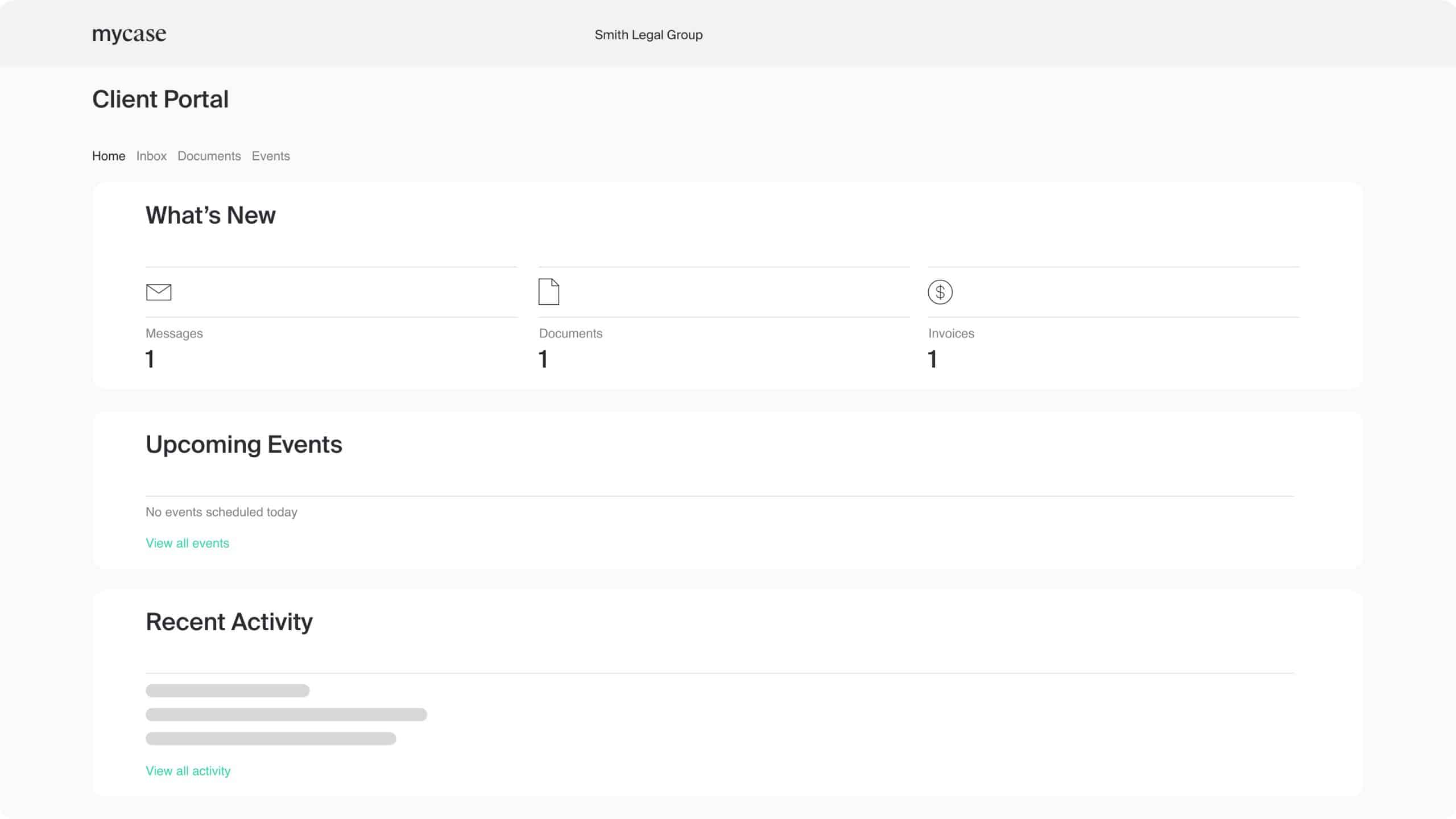
Related: Best Law Firm Client Portals in 2025
What are the Pros & Cons of MyCase?
Pros
- User-Friendly Interface: Most users report that MyCase is easy to learn and navigate, even for those with limited tech experience.
- All-in-One Functionality: MyCase covers nearly every operational need of a small to midsize firm—from intake to billing.
- Strong Client Communication Tools: Secure messaging and a client portal help reduce friction and improve transparency.
- Accessible Anywhere: As a cloud-based tool, it supports remote work and multi-office firms without added infrastructure.
- Reliable Support: Reviewers often highlight responsive onboarding and helpful customer support during implementation.
Cons
- Workflow Inflexibility: Some users find MyCase’s workflows rigid, especially around appointment scheduling and lead handling.
- Limited Customization: Features like text messaging and homepage layout offer little room for customization, which can be frustrating.
- Email Integration Issues: Outlook integration and email document handling are common pain points for firms with high email volume.
- Clunky User Experience in Some Areas: Tasks related to scheduling, calendar syncing, and toggling between leads and appointments can feel unintuitive or inefficient.
- Auto Logout Frustrations: Users working across multiple tabs are often logged out prematurely, which can interrupt work and cause lost progress.
How Much Does MyCase Cost?
MyCase offers three pricing plans that are billed per user per month:
- Basic – $39/user/month: Includes core features such as case management, calendaring, and time tracking.
- Pro – $89/user/month: Adds advanced tools like workflow automation and more in-depth reporting.
- Advanced – Pricing not publicly listed; designed for firms that need custom reporting, integrations, or additional support.
All plans come with a 10-day free trial and do not require a credit card. The pricing is competitive within the legal tech space, though some firms may find the jump from Basic to Pro steep if they only need one or two additional features.
How to Get Started with MyCase
Getting started with MyCase is relatively straightforward. You can sign up for a free 10-day trial directly on the MyCase website, with no credit card required. After filling out a short form with your contact and firm information, you’ll get access to the full platform so you can test its features and see how it fits with your firm’s needs.
MyCase provides onboarding support, tutorials, and a knowledge base to help new users get up to speed. While the platform is fairly intuitive, scheduling a demo or walkthrough can help ensure you’re setting things up efficiently from the start. Firms transitioning from another tool should plan for a brief learning curve and possible data migration delays, based on some user feedback.
What are the Best Alternatives to MyCase?
While MyCase is a strong all-in-one option for legal practice management, it may not be the perfect fit for every firm. Some law practices may prefer more customization, more intuitive workflows, or a more modern user experience. Here are five strong alternatives, each with its own strengths depending on your firm’s size, workflow, and goals.
Ahsuite
Ahsuite is a client portal platform that focuses on simplicity, security, and customization. While not built exclusively for legal use, it’s a strong option for attorneys who want to securely share documents, organize client communications, and manage tasks without being locked into legal-specific workflows. Ahsuite includes essential tools like file management, task tracking, a team password manager, and the ability to embed forms, videos, and calendars—all behind a branded login. It’s especially well-suited for solo attorneys and small firms who prefer lightweight tools over bloated legal software suites. The free plan includes up to 10 portals, making it easy to test and scale.
Clio
Clio is one of the most well-known legal practice management platforms and is often used by mid-sized to large firms. It offers robust functionality, including case and document management, calendaring, time tracking, billing, and client communication. Clio also boasts a large ecosystem of integrations with tools like Microsoft 365, QuickBooks, Zoom, and Dropbox, which helps firms create a tailored workflow. Its Clio Grow add-on provides advanced CRM and client intake tools, making it a good fit for firms focused on business development and growth. While powerful, Clio can feel overwhelming for smaller firms, especially those who don’t need every feature.
PracticePanther
PracticePanther is a modern legal software platform designed with automation and ease of use in mind. It offers similar functionality to MyCase—case tracking, time entries, billing, and client messaging—but with a more flexible, user-friendly interface. One of its standout features is the ability to automate routine tasks, such as follow-up emails or document generation, which can save hours of manual work each week. PracticePanther is also known for its strong mobile app and real-time updates, making it a solid choice for attorneys who often work on the go. Its pricing is competitive, and the software can scale with your firm as it grows.
Smokeball
Smokeball is best known for its advanced document automation and productivity tracking. It was built for small law firms that want deep insights into how time is spent, even down to the minute, and includes features like automatic time tracking and activity reporting. Smokeball’s document automation allows users to generate complex legal forms with a few clicks, reducing errors and saving time on repetitive paperwork. It’s particularly well-suited for practice areas like family law and real estate law, where document volume is high and consistency is crucial. The platform also includes a built-in client communication tool and integrates with Outlook and Word for a seamless workflow.
Filevine
Filevine is a case management and legal operations platform built for high-volume or growing firms that need more customization and collaboration features. Unlike many out-of-the-box tools, Filevine lets you tailor your workflows, fields, and reports to fit the way your firm actually works. It includes powerful task management, internal communication tools, and document automation, along with strong reporting and analytics features. Filevine is especially popular with personal injury firms and firms that manage large caseloads or need detailed tracking of deadlines and staff activity. It’s more complex than some of the other tools on this list, but the flexibility can be a game-changer for firms willing to invest in setup and training.
Try Ahsuite
MyCase is a capable legal practice management platform designed to help law firms stay organized, save time, and provide better service to clients. It’s especially useful for small to midsize firms seeking an all-in-one solution. However, it’s not without its drawbacks—especially in areas like customization, email integration, and workflow flexibility.
If your needs are more focused on providing a branded, secure client portal, task sharing, and collaborative content delivery, Ahsuite might be a better fit. You can try it free for up to 10 client portals, and see how it fits into your legal workflow—without needing to commit to a traditional legal suite.
